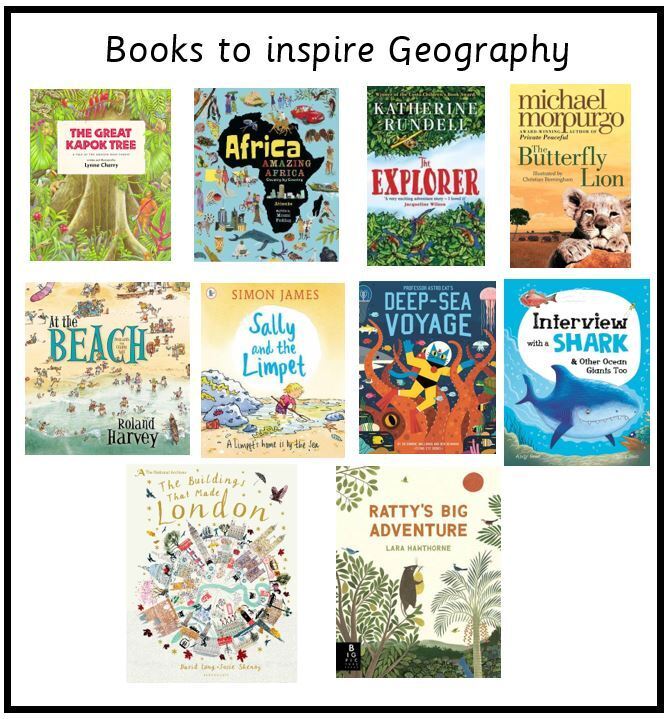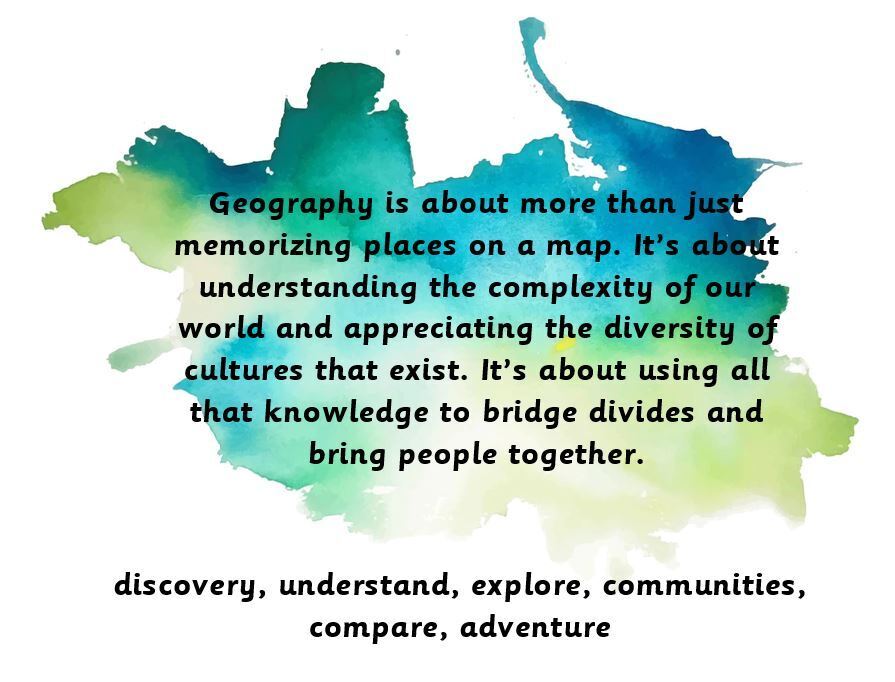Curriculum - Geography
At Bridgtown Primary school, we believe that children should be given numerous opportunities to become geographers. We are all curious to learn about the world so we can better understand the world of today. It is our aim that children gain a good understanding of locational knowledge and place knowledge through asking questions allowing children to develop with further thinking. Children are encouraged to think critically and evaluate gathered evidence.
Curriculum Rationale
At Bridgtown Primary school our school vision is ‘Hand in Hand’ -building for the future’ Through our teaching of geography, we focus on our pupil’s individuality and core knowledge, in particular their sense of place. We plan to nurture and develop our pupils’ interest, knowledge and skills in both the local area and also the wider world. We aim to ensure our pupils recognise their contribution to and responsibility for locality, country and global community.
At Bridgtown our intent, whilst teaching Geography, is to stimulate a curiosity in order for our children to develop knowledge, skills, and understanding of this subject. Through careful planning and the use of progression maps, a logical and sequential curriculum is formed which develops the children’s knowledge and skills. This is supported by experiences given.
The core of our Geography curriculum is the National Curriculum.
Our skills progression grids cover the four key areas of Geography:
- Locational Knowledge
- Place Knowledge
- Human and Physical geography
- Geographical Skills and Fieldwork
The teaching of these four key areas will be supported by the following aims of the National Curriculum:
- Understanding locational knowledge and the impact this has.
- Understanding significant impacts of human geography on the wider world.
- Understanding significant impacts of physical geography on the wider world.
- Understanding geographical concepts.
- Developing an understanding of geographical enquiry
- How to place growing knowledge into different contexts
- Improving awareness and using geographical vocabulary
We aim for all of our pupils to have gained a curiosity and passion for geography through new knowledge of places, events and historical periods. Pupils will be able to talk enthusiastically and articulate through investigation, discussion and debate using geographical questioning and key vocabulary.
Geography in EYFS
The Early Years Foundation Stage Curriculum supports children’s understanding of geography, people and communities through the planning and teaching of ‘Understanding the World’. Children learn about features of their immediate environment such as school, home, and their community through first-hand experiences and learn how environments may differ through the sharing of books, stories, poems, small world play, role play and visits. Children enjoy the valuable experiences gained from our regular trips to places within their local community such as the church, café and local shops. Children are given time to discuss, comment and ask questions about what they observe about the world around them and they are encouraged to be active learners and explore their interests further.
What does Geography look like in EYFS?
Geography in KS1 & KS2
Our Geography curriculum is designed to enable our children to become independent, respectful and successful adults in terms of being able to find employment in the future and to be moral citizens. We aim to provide a relevant, progressive and well-structured Geography curriculum which enables children to develop and master a broad knowledge and wide range of skills.
Our Geography curriculum is structured providing for each key stage and year group:
- A clear list of end points at each key stage.
- Progressive knowledge and skills which will aim to shape children as future geographers.
- A progressive and clear list of geography vocabulary through the key stages.
- Provide a variety of enrichment opportunities including local area visits, visits to different places and visitors into school.








